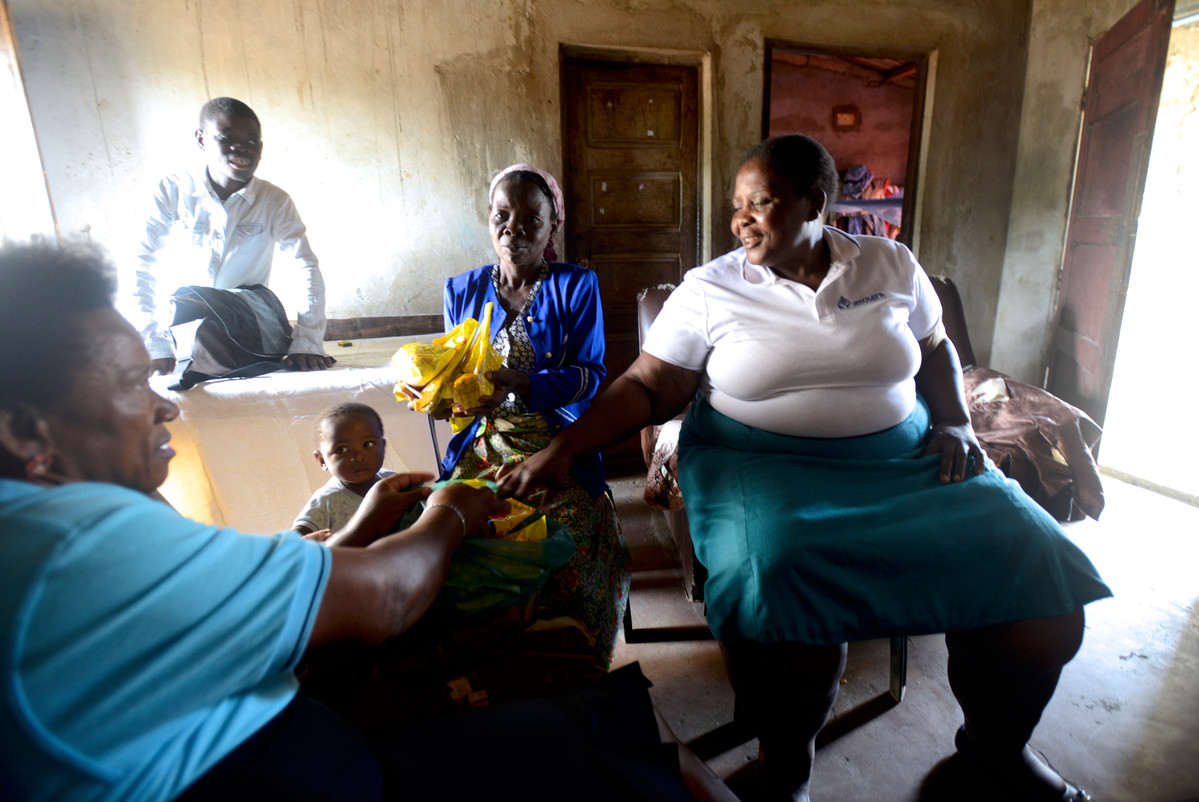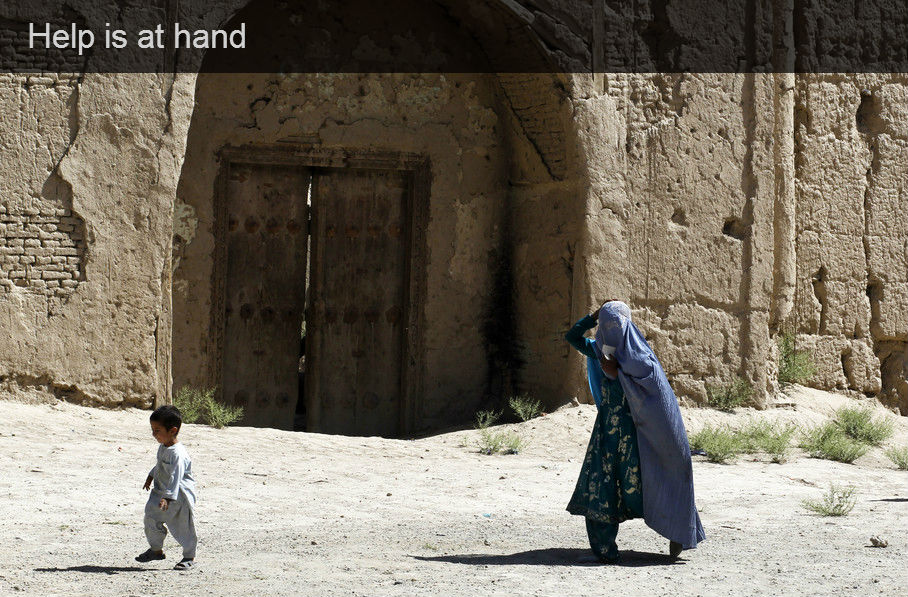
Spotlight
A selection of news from across the Federation

IPPF Statement on the 68th session of the Commission on the Status of Women (CSW)
IPPF welcomes the agreed conclusions of the 68th session of the Commission on the Status of Women (CSW), on the theme of “Accelerating the achievement of gender equality and the empowerment of all women and girls by addressing poverty and strengthening institutions and financing with a gender perspective”. IPPF actively engaged in the process by providing technical inputs to Member States, raising awareness about the interlinkages between SRHR, poverty, gender equality and the empowerment and human rights of all women and girls.
Filter our news by:


| 17 August 2023
Japanese MP visits IPPF Member Association in Mozambique
On 16 August 2023, Japanese House of Representatives member Dr Toshiko Abe visited head office and the Adolescent and Youth Friendly Services Centre of IPPF’s Member Association in Mozambique, the Associação Moçambicana para Desenvolvimento da Família (AMODEFA). Dr Abe visited one of AMODEFA’s eight youth centres in a particularly marginalised and high poverty density area, where youth friendly health services is difficult to reach for the local youth who need them most. Their youth centre functions as the hub of youth target activities such as provision of a range of services from HIV testing and treatment to SRHR counselling and other information and services around sexual health and rights. In 2022 23.57 % of AMODEFA’s family planning services were provided to clients under 20 years. AMODEFA was established in 1989 and has been IPPF’s Full Member Association since 2010. It is an independent, non-profit, and non-governmental association working in 10 provinces in Mozambique. As the leading service provider in Mozambique, AMODEFA provides comprehensive and diverse sexual and reproductive health, including that related to SGBV. Their focus is on vulnerable people such as women, girls, people with disabilities.

| 07 December 2017
Al Jazeera highlights Global Gag Rule impact for IPPF Member Association in Mozambique
In the latest People and Power documentary, the team travel round Mozambique with AMODEFA, to look first-hand at the human impact the Gag rule has had in the country. The Global Gag Rule denies U.S. funding to organisations like IPPF if they use money from other donors to provide abortion services, counselling or referrals—even if abortion is legal in a country. It blocks critical funding for health services like contraception, maternal health, and HIV prevention and treatment for any organisation that refuses to sign it. The documentary talks to AMODEFA clients and staff who have been involved and helped by the US funded health programmes covering young people, HIV and Tuberculosis. AMODEFA faces significant losses to their programming budget of $2 million. Work that has built trust and provided support and treatment for many people who would have been left behind. The documentary spans several provinces, with the team visiting specialised outreach services that go out to the most rural populations. ‘We will have generations that are sick without knowing what they have. They will run the risk of transmitting HIV to other people because they do not know their HIV status,’ says project leader, Dr Marcel Kant. ‘We are condemning our society to live with this illness and there will be a large number of deaths.’ IPPF is working with AMODEFA to find alternative sources of funding. Executive Director Santos Simione, is working tirelessly with his team to ensure AMODEFA’s works continues, “We must be resilient! This also means being resilient to ensure that the progress made in sexual and reproductive health and rights continues and the provision of services minimizes the suffering of our population, particularly adolescents and young people, women and children”. The team Read more about AMODEFA's tireless work in Mozambique

| 04 February 2016
A matter of life and death: IPPF's humanitarian response
Today, the Danish Family Planning Association (DFPA) together with the Danish All-Party Parliamentary Group (APPG) on Sexual and Reproductive Health and Rights, and the Danish Ministry of Foreign Affairs convened a conference with the International Planned Parenthood Federation (IPPF) on the challenges of sexual and reproductive health and rights (SRHR) in humanitarian crises. HRH the Crown Princess of Denmark and the United Nations Population Fund (UNFPA) were also in attendance. HKHK Mary: women are not vulnerable in hum crises because they are weak but because they lack equality #SRHRinCrises pic.twitter.com/EOhV38IpBi — Mette Gjerskov (@MetteGjerskov) February 4, 2016 More than 100 million people are in need of humanitarian assistance. It is estimated that 26 million are women and adolescent girls of reproductive age of which 500 die every day from complications related to pregnancy and childbirths. For example, the Syrian civil war has resulted in a 39% rise in maternal mortality since 2010 and gender-based violence is affecting at least 7 out of 10 women in some crisis settings. This shows a great need for humanitarian actors to ensure that the human rights of women and girls are protected and able to access sexual and reproductive healthcare. // IPPF: saving lives in crises Right now more than 250,000 women and girls need help. IPPF provides the emergency response needed, like family planning, which can reduce maternal deaths by 33%. SEXUAL & REPRODUCTIVE HEALTH SERVICES SAVES LIVES. AND IS A HUMAN RIGHT. Posted by IPPF on Thursday, 4 February 2016 The increasing number of humanitarian crises calls for serious rethinking of the current humanitarian response. The status of sexual and reproductive health and rights (SRHR) violations in humanitarian crises must be confronted and prevented. Over the past decade, IPPF has reached millions of people during floods, conflicts, earthquakes, cyclones when health care often collapsed, IPPF Member Associations continued to serve the unreachable particularly women which make three quarters of IPPF clients. We have an organizational strategy to address sexual and reproductive needs before, during and after humanitarian crises. IPPF starts with its Minimum Initial Service Package, which is life-saving, and transition to its Integrated Package of Essential services, which is life-changing. This ensure that a sxual and reproductive health situation is better after the crisis than before. @LcrTrc Crown Princess & @ippf CEO champion #women's #health & #rights in #humanitarian crisis settings pic.twitter.com/4ajLr0rkXg — Matthew Lindley (@t__box) February 4, 2016 Director general, Tewodros Melesse said, "Access to these services,especially in the midst of war or natural disaster, is a human right which does not only saves lives in the short run, but also helps build resilience amongst refugees and displaced people. It’s one of the most important aspects of humanitarian assistance that is often forgotten when disaster and conflicts strike."













